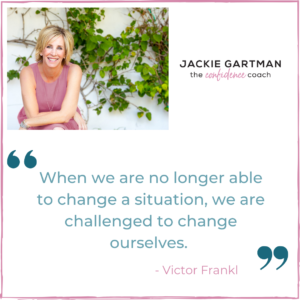
I’m not having an affair.
I didn’t go through a messy or expensive divorce.
And I didn’t find him on Match.com.
Let me explain: last summer was my 25th wedding anniversary, as good a time as any to evaluate the marriage that I considered “fine.” In retrospect, we were far, far less than fine: we’d had long-ago but still memorable financially challenging years, we’d raised two extremely active kids, and we’d just plain been together for a very long time. “Fine” might by okay for inanimate objects like my TV or my old-school iPhone4, but I decided it wasn’t good enough to the most significant relationship of my life.
I wanted more. I wanted what I secretly believed was no longer possible: an alive, passionate and deeply intimate and romantic partnership.
So my mate and I, along with 20 other couples, enrolled in a workshop last July called “Getting the Love You Want,” based on the book of the same title by Harville Hendrix. I could tell you all the nitty-gritty details, but I’m afraid you might get bored and think this article was less than “fine” so it’s probably simpler to move on and let you Google away if you wish.
My biggest takeaway: the more positive experiences you generate, the greater your tolerance for those unplanned negative experiences. In fact, according to Hendrix and his research, a ratio of five to one (five positive experiences to each negative) has a measurable effect on a couple’s immunity to conflict. It’s like taking too much money out of the ATM machine – if you don’t make more deposits than debits, eventually you’re gonna run out of money.
In my case, I was on the verge of bankruptcy. I’d been making a lot of withdrawals—and very few deposits.
With this in mind, here are three simple steps that you can take immediately to the bank. I’ll admit that I found them borderline corny and more than a bit artificial at first, but trust me: stick with them. They feel more organic with time and practice. Better yet, they work.
- Commit to ending the negativity. Think of yourself as your partner’s gatekeeper, which means that you do your best to help your partner feel supported, safe and nourished. That means eliminating sarcasm, criticism or any other negative behavior.
- Give three appreciations to your partner every day. Think of something that you genuinely find endearing or lovable about your partner and tell him/her. Be as specific and concrete as possible. Avoid any statements that compare past behaviors or future fears: instead of “Thanks for hugging me before leaving for work unlike last week when you left the house without saying goodbye,” try “I really appreciate that you took the time to hug me before leaving for work. I’m know you had a lot of other things on your mind.”
- Open a gift Shop for your partner. Take note of the things and experiences both large and small that your partner desires. Twice a month, surprise him/her by giving them something from their gift shop. It could be buying fresh flowers, babysitting the kids so your spouse can take a bath or something smaller like buying their favorite pack of gum or taking their car for a wash. Anything that demonstrates that you’re listening to and thinking about them.
If your marital account is running low, remember that romance, connection, passion and intimacy are not just feelings that we have or don’t have at any given time. They’re a skillset, a practice and a way of life.
And the new boyfriend? I met him 25 years ago and run into him when I make my daily bank deposit. We can’t take our eyes off one another.




